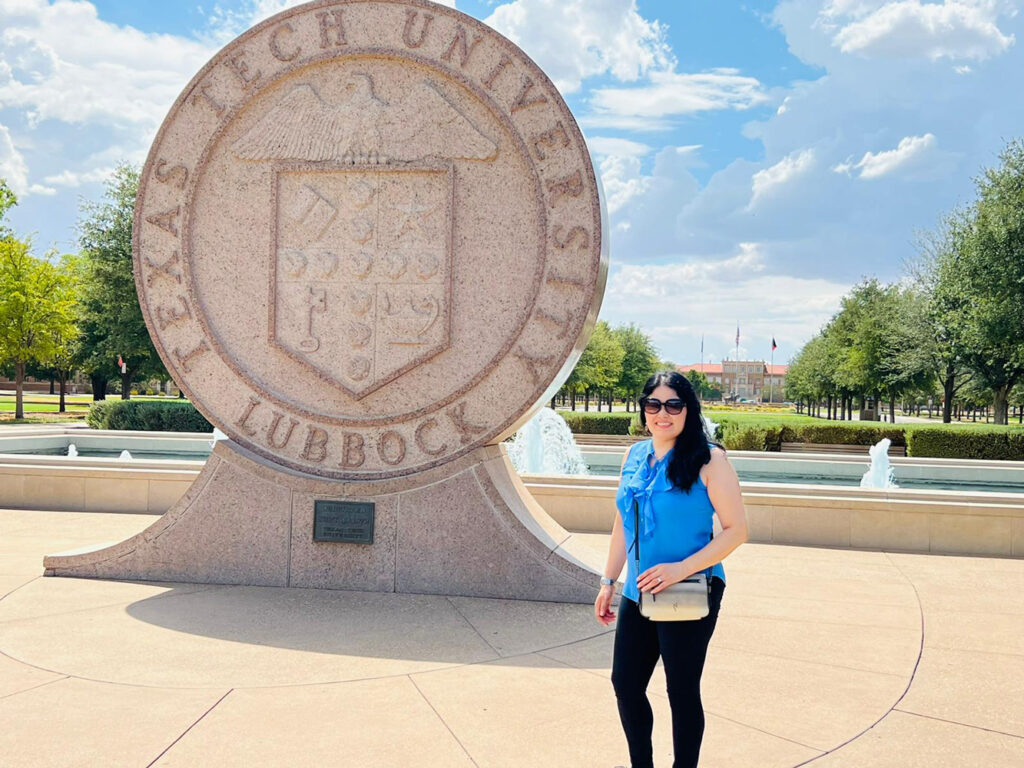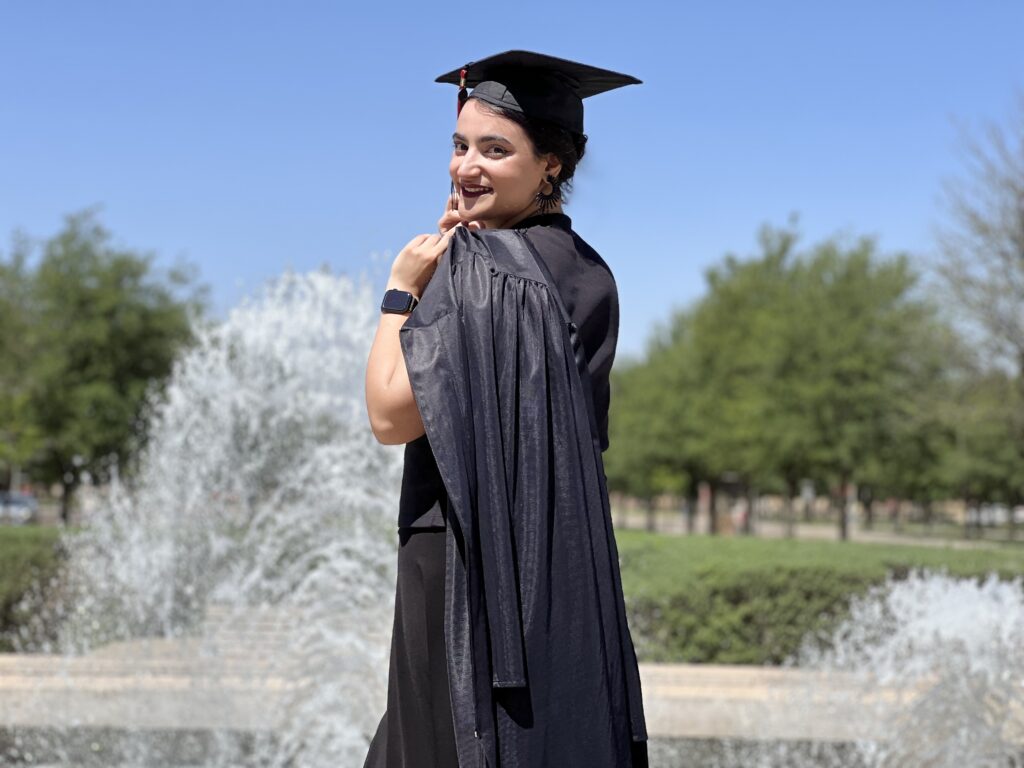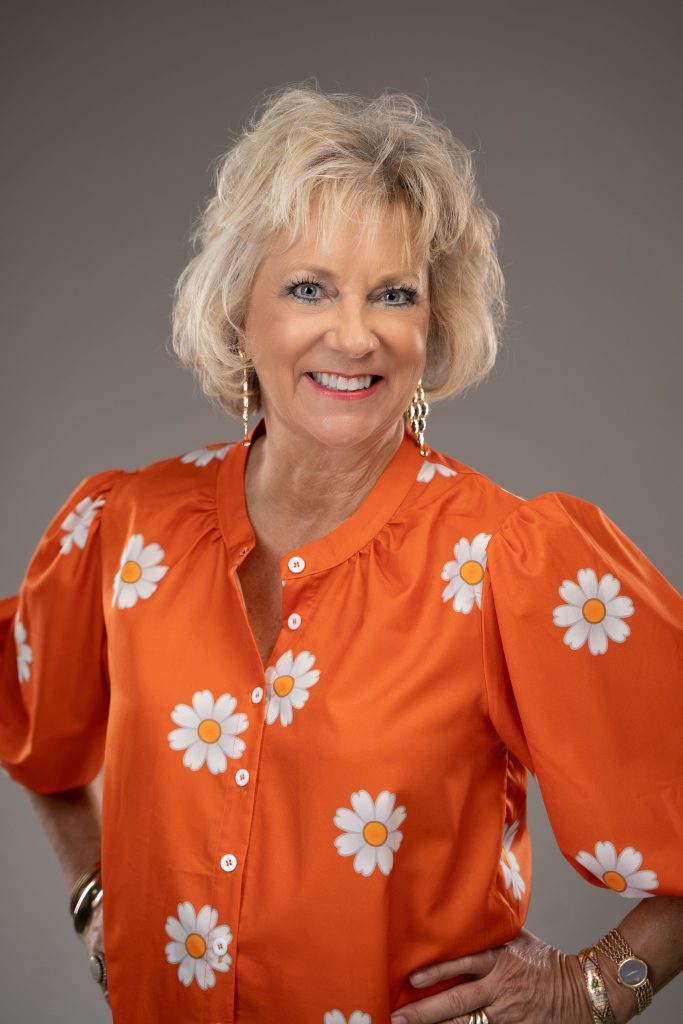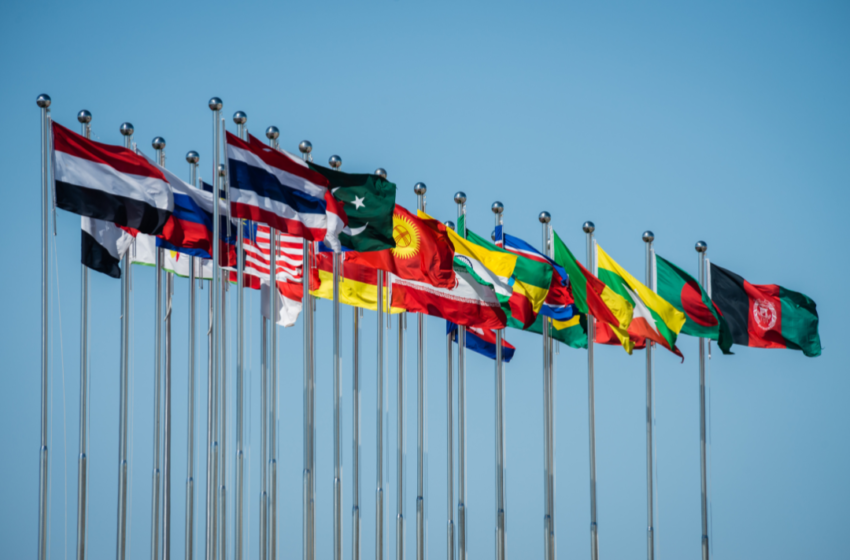Due to the current news cycle, focus has been brought to international students who are in the U.S. attending our universities. I live in a really normal part of America: Lubbock, Texas, and my experience is nothing like we are seeing on the news.
Through my friend Dawn, whose husband Marcus arrived in America in 1969 with $200 in his pocket and spoke little English (their story is one worth reading), I have had the opportunity to meet two exceptional young women. Because of Dawn’s personal story of marrying an immigrant, the fact that she is a Texas Tech University graduate who spent her entire career teaching there, and because she and Marcus have established several scholarships, they are known to the school’s leadership. Dawn was introduced to these international students and has taken them under her wing. Thus, they became a part of my life.
Both were students at Texas Tech University (now graduated). Both are beautiful, intelligent, and brave. Both are extremely grateful for the opportunities they have here in America—which they would not have back in their home countries. Both are from countries where U.S. access is currently prohibited—though they come from different countries and have very different stories.
Meet Saleha

Saleha came to the U.S. as a refugee from Afghanistan after the government collapsed in August 2021. She grew up during the first Taliban regime. Her early education was at home since girls were not allowed to attend school during that time. When the Taliban ruled Afghanistan from 1996 to 2001, the U.S. and its coalition partners invaded following the 9/11 attacks, and schools and universities reopened. Saleha started school and then attended Kabul University, where she completed her bachelor’s degree in journalism. She began in print media, transitioned to radio, and eventually worked in television. Her investigative reporting on socio-political issues gained widespread recognition as credible journalism throughout Afghanistan.
Saleha had a comfortable life with a lovely home, car, and a personal driver. She loved shoes and had more than 150 pairs! But everything changed on August 15, 2021.
When the international community withdrew and the Taliban seized control, Saleha was forced to flee with nothing but the clothes on her back, a backpack, her laptop, and her phone. She tried to withdraw money from the bank, but it had already been closed by the Taliban. She moved constantly to avoid being found. Due to her work in media and her advocacy for women’s rights, Saleha was particularly vulnerable. She is also a member of the Hazara ethnic group, a Shia Muslim in a country ruled by the Sunni Taliban.
After reaching out to her contacts at the U.S. Embassy, she received instructions to go to the airport. She struggled for two hours to get there, but the crowds made it impossible to get close to the gate. “The bullets were falling like rain!” she recalls.

Thanks to an American soldier who recognized her from television, Saleha was escorted into the airport. The situation was chaotic there, with no food or water, but she spent the night in the airport before being directed onto a military transport aircraft. The plane had no seats, seatbelts, or bathrooms, and no one knew where they were going—just that it was out of Afghanistan. The journey took her to a U.S. military base, where the conditions were equally challenging. From there, she traveled to Bahrain, Kuwait, Bulgaria, and finally Washington D.C. before being sent to Fort McCoy, an Army installation in Wisconsin, which was ill-prepared for the influx of refugees.
After staying at Fort McCoy, she contacted a journalist friend in Chicago who offered her temporary shelter. She stayed there for six months, taking accelerated English lessons every day. Local church volunteers helped her with clothing and support. “The Taliban took everything from me. I was dependent on the kindness of strangers,” she says.
While in Chicago, through Google, Saleha found and applied for scholarships for Afghan women. She passed the English competency test on her first attempt and was accepted by Texas International Education Consortium (TIEC) to Texas Tech University after seven months in the U.S. At 40 years old; she was returning to school for the first time since 2010.

With a scholarship from the Texas International Education Consortium (TIEC) U.S. State Department, Saleha moved to Lubbock, where the Dean of the College of Media & Communication, David Permitter, and other professors welcomed her. After studying there for a year, she was introduced to Dawn and Marcus, who, as she says, “changed her life.” Dawn embraced Saleha and brought her into our circle of friends, where she was warmly accepted despite the age gap.
Saleha excelled in her classes and was recognized by the Texas Tech University president. In 2024, she graduated with a master’s in mass communication. She now lives in a small apartment in Chicago and works for Borderless, an online magazine. If she were to return to Afghanistan, she would be arrested and killed. Her “Parole Visa” status prevents her from re-entering the U.S. if she leaves. Yet, she says, “I’m not afraid anymore. I can live in peace.”
Saleha is deeply grateful to the American people, TIEC, and the Christian church community for supporting her. She has fulfilled her dream of working as a journalist in the U.S. and found a safe place to live.
Meanwhile, women in Afghanistan are deprived of their fundamental rights. They are treated like prisoners or slaves, unable to go to school and dress freely, needing a male guardian to leave the house, and subject to whatever demands a man makes. Saleha feels that the international community has “forgotten Afghanistan.”
Meet Hasti
Hasti, born in 1998, grew up under the Islamic Republic in Iran—where art and music is not appreciated and anything western is not appreciated by the government. Yet, she fell in love with the piano when she was 4 years old. The father of one of her little friends brought a small keyboard to her class. She was fascinated with it. This man gave her lessons until, when she was 7, the friend’s family had to leave the country due to religious persecution.
Her parents, both music lovers themselves who played traditional Persian instruments, understood and encouraged her love of the piano and got her a 5-scale Yamaha keyboard. She searched YouTube for videos to teach her how to play. She remembers being 11 years old and hearing a symphony. She was so touched by the music, she cried.
Yet, music was not a viable career path for her. Instead math and science were massively encouraged for students her age (her mother is a biologist and her father an engineer) and, at 8 years old, her parents pushed her toward astronomy. She loved it. She believes her astronomy background is responsible for her being accepted into the government-based National Organization for Development of Exceptional Talent. Despite wanting to be a musician, she had no choice. If she’d failed, she would have been blackballed. Some of her friends who left the school had to leave the country. She attended there for 6 years and says it “was hell for me.”
Meanwhile, her father risked a lot to take her to Tehran, a round trip of more than 24 hours, to get her piano lessons. The teacher was expensive, but not very good. Only one university in Iran taught music and Hasti got accepted. She was living alone in Tehran—which is extremely difficult , specifically to find a place as a single woman. She says: “Everybody in Iran does things that are illegal.” They just hope they don’t get caught. At 18, she was arrested by Morality Police because of “improper hijab.” It was a very scary time as terrible things happen to women in prison. They ripped her clothes off so she won’t be able to wear them again—although she had the most normal clothes on with a proper scarf to cover her hair. Gratefully a neighbor came, brought her clothes and got her out before she was put into the full jail.

Hasti loved playing the piano and especially performing. She wasn’t easily allowed to perform in public settings. She explained: “Society was artless and I was doing art. There are huge number of artists that are trying to show their art and talent, but government is fighting against them; as an instance, nowadays government is hacking and closing the women singer’s social media pages vastly.”
This led her to search for educational opportunities in the U.S. With her varied background in music education, Hasti developed her own style of playing the piano. She was accepted at the renowned Manhattan School of Music, but without financial support, she couldn’t live in New York City. She also got accepted at Texas Tech University in Lubbock—and it came with enough aid to get by (it is a lot cheaper to live in Lubbock). While attending TTU, she had her first real music education. She graduated in 2024 with a master’s in piano performance. She is now attending Bard Conservatory in Hudson, NY with her boyfriend from Iran. Mohammad plays the clarinet while Hasti is a pianist.

Talking about life back in Iran, she explained that girls are losing opportunities to study. The government doesn’t like it that women are allowed an education and tries to stop women from improving. Still in some biased families, women could get killed by the men in the family because in their old and out of dated beliefs, women are better dead than to bring shame to the family.” Yet, lots of strong women are trying to break historic rules. Rebellious women risk getting killed; “but when you see life can be different, you cannot tolerate the life you are living.” If Hasti were to go back, she could probably teach privately, almost underground, like the lessons she received. But she might be arrested at the airport because she posted anti-Islamic Republic things on social media. She posted in English because she wants people here to understand what is really going on in Iran. Her comments have scared her parents, and they asked her to stop. At the least, her dreams would be “smashed.” It would be like giving up everything. She could never have the life—a car, an apartment, a social life—she has in the U.S. She explained: “Because of my experiences in the U.S., going back would be so much harder.”
Before the dean introduced her to Dawn, she says: “I was so alone. I had no friends at school.”
Hasti dreams of bringing her family to the U.S. But it is expensive and difficult to leave Iran. A tear trickled down her face as she told me: “I want my parents to experience what I have here.” She has one sister who also wants to be in art, but she is not brave enough to fight for it. Her mother is nervous every time her little sister (6 years younger) leaves the house. Hasti wishes she could buy her father his dream car: A 2007 Toyota Land Cruiser. She wants her mom to have a peaceful life.
It was important to Hasti that she communicated how kind the people of Iran are; they are not the government. Historically, Iran, formerly Persia, is a land of high culture, art and beauty. And all of these rich cultural achievements have been affected by the political factors. The past is more modern than the present. She said: “I fear for all of them, they are experiencing a very hard life.” The people are afraid to talk about the dark things.
At the end of our two-and-a-half-hour visit, Hasti said: “It feels so good to be heard.”
How is life in America Different for Women from Your Home Country?
When I asked the girls about how life for women in America compares to women in their home countries, three words stood out: freedom, opportunity, and Joy!
Freedom
Hasti said: “The freedoms women take for granted are not even imaginable in my country. America has total freedom, Iran: very little.” Saleha added: “I was surprised at the freedom and independence women enjoy here.” She continued: “If I had the opportunity to address American women, I would tell them how fortunate they are to live in a society that values and protects their freedoms. It is easy to take these freedoms for granted when they are a part of everyday life but understanding the struggles women face in countries like Afghanistan can provide a deeper appreciation for these rights. The freedom to express oneself, move freely, and make choices about one’s life is not universal, and American women should cherish and protect these liberties.” Hasti Agrees: “Women in the states don’t know what they have.”
Addressing freedoms, Hasti explained: “Women in the U.S. can’t understand that we cannot go to the beach. Kids and men can go, but if we do, we must stay fully dressed.
Opportunities
Saleha reflected on the contrast in opportunities between America and Afghanistan: “In Afghanistan, under the current Taliban regime, women’s rights have been eliminated. Women are excluded from public life, education, and employment. They are required to wear burqas and often face severe punishment for not adhering to the Taliban’s strict interpretation of Islamic Sharia law. Women’s freedom and opportunities are significantly curtailed. In the United States, women have the right to pursue education and careers of their choice without severe restrictions. The concept of gender equality is deeply ingrained in American society, and women are encouraged to participate actively in all spheres of life, including politics, business, and academia.”
She concluded: “Seeing women in leadership roles across various sectors was both inspiring and eye-opening.”
Upon arriving in America, one of Hasti’s biggest surprises was discovering that her department head at Texas Tech University was a woman—and that she was respected by men and had the same rights and privileges as her male colleagues.
Joy
In our conversations, Saleha mentioned that women in Afghanistan have little joy. Hasti observed: “In America, women enjoy life. They laugh and enjoy time together.” When she’s been with Dawn, me, and our friends, she watches us and sees that we are “uplifting and happy.”
Dreams
Each of these young women has dreams for their life in America. For Saleha: “I harbor hopes and dreams for my life, including pursuing higher education, building a successful career, and contributing meaningfully to society. I aspire to live in an environment where I can freely express my ideas and pursue my goals without fear of discrimination or repression.”
In closing, Saleha exclaimed: “I love the U.S. because I have freedom, and I can elevate myself.” She encourages American women by saying: “You can live the fullest life—as far as confidence and ability can take you.”

For Hasti, her dream was to be a great musician. But once she met Mohammad, that began to change. While music will always be an important part of her life, now that she and Mohammad are together, and engaged to be married, her goal is to have a home and family. Her bucket list includes: “To own a grand piano and have a beautiful house to put it in.”
I wish you could watch the four plus hours of video I have of these amazing women telling their stories and answering my questions about life for women in America. I hope that reading my review of times with them gives you insight and, perhaps, changes your ideas about international students.
My wish is that our immigration policies can be amended to allow stellar students, such as these young women, to stay in America and become contributing members of our society. Currently, Hasti and Mohammad’s visa only allow them to stay as long as they are students and limits their employment opportunities. For Saleha, I wish that she’d find a television opportunity as an international commentator and that she could freely travel globally.

Marita Littauer Tedder has spent the majority of her adult life working with women—helping them improve relationships, achieve their speaking and writing dreams, and being the best version of themselves they can possibly be. The author of 20 books, this Living Our Best Life Project is her newest effort—through which she hopes to challenge women to be fulfilled where they are.


Very brave, well done.🙂
So humbly to think of what we take for granted and what all they’ve been through.
Well written and cogent. Americans take for granted what we have here….until they see what others from other places have to endure. It was awful how we disengaged from Afghanistan; just leaving a 2500 force at a US airbase could have prevented the otherwise inevitable Taliban return. Clearly, Dawn and her circle were instrumental in improving the lives of these women. It is said—To save one life is save the world.
Thank you for your kind words. this piece was very important to me.